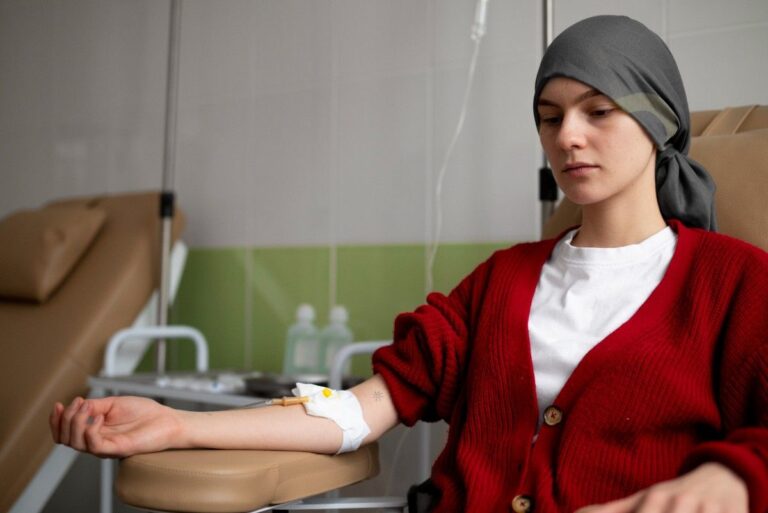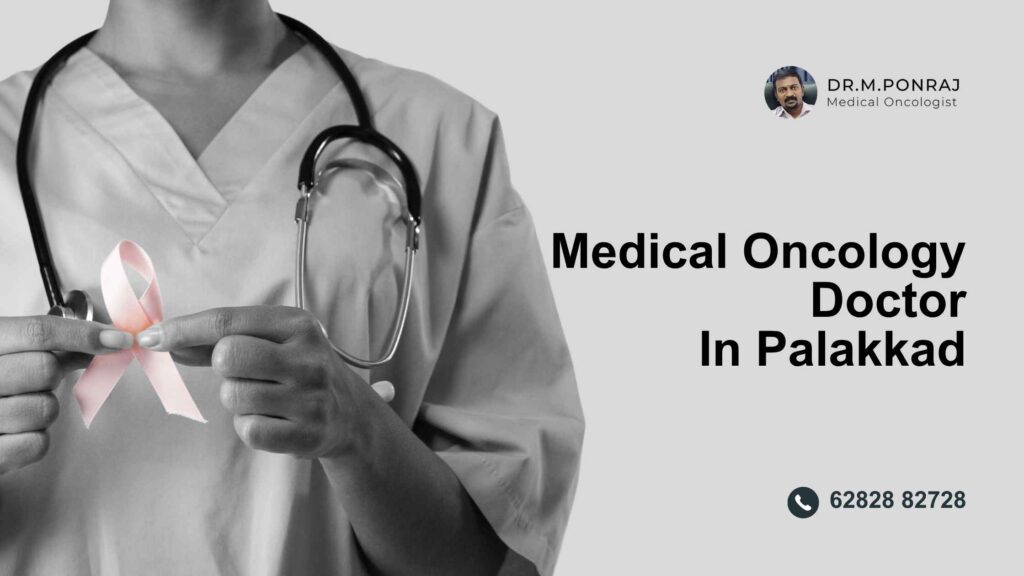When faced with a cancer diagnosis, one of the most critical decisions is choosing the right specialist. In Palakkad, patients and families seek a medical oncology doctor who not only brings years of experience and clinical expertise but also compassion and personal attention. This blog serves as a comprehensive guide to understanding the role of a medical oncology doctor in Palakkad, the treatments they offer, and how they support patients throughout their cancer journey.
Understanding Medical Oncology
Medical oncology is a branch of medicine dedicated to diagnosing, treating, and managing cancer through medical treatments such as:
Chemotherapy – Drug-based treatment that kills or slows cancer cells
Immunotherapy – Enhancing the body’s immune system to fight cancer
Targeted Therapy – Attacking specific genetic changes in cancer cells
Hormonal Therapy – Blocking hormones that fuel certain cancers
A medical oncology doctor in Palakkad plays a central role in designing personalized treatment plans that are tailored to each patient’s type of cancer, overall health, and treatment goals.
Why Choosing the Right Oncologist Matters
The right medical oncologist is more than just a cancer specialist—they are your guide, advocate, and partner throughout treatment. Here’s why the choice of your oncologist matters:
Personalized Care: No two cancers are the same. Every patient needs a unique approach based on genetic, lifestyle, and clinical factors.
Advanced Treatment Options: A qualified oncology doctor will offer access to the latest therapies and trials.
Ongoing Monitoring: Cancer care requires continuous evaluation and adjustment. Your oncologist ensures this happens seamlessly.
Psychosocial Support: Cancer affects the body and mind. A compassionate oncologist provides emotional reassurance and support.
In Palakkad, patients increasingly turn to specialists who blend high-tech treatment with a human touch—something that defines a quality medical oncology doctor.
Key Qualities of a Trusted Medical Oncology Doctor in Palakkad
When evaluating oncologists, look for the following:
Board Certification and Experience
Clear Communication
Patient-Centered Approach
Access to a Network of Specialists
Commitment to Continuous Learning and Research
One such example is Dr. M. Ponraj, a seasoned medical oncology doctor in Palakkad, known for his holistic and compassionate approach to cancer treatment.
Comprehensive Cancer Care in Palakkad
Palakkad has evolved into a center of modern oncology care, offering advanced facilities and skilled professionals. When patients visit a medical oncology doctor in Palakkad, they can expect:
Thorough diagnostic workups
Evidence-based treatment plans
Coordination with surgeons and radiologists
Supportive care for side effect management
Long-term survivorship guidance
This integrated model ensures that every stage—from diagnosis to remission—is handled with precision and care.
Personalized Treatment Approach
No two patients are the same. That’s why personalized cancer treatment is essential. A medical oncologist begins by:
Understanding the Diagnosis: Reviewing biopsy, imaging, and lab tests
Staging the Cancer: Determining how far it has spread
Planning Treatment: Choosing therapies that best suit the patient’s cancer type, stage, and overall health
Monitoring Response: Adjusting as needed to optimize outcomes
By partnering with a medical oncology doctor in Palakkad, patients gain access to treatments aligned with the latest research and tailored to their individual needs.
Latest Treatment Modalities Available

Cancer care in Palakkad has evolved significantly, offering patients access to some of the most advanced, research-backed treatment options available in India. These modern therapies are not just about increasing survival rates—they also focus on improving the quality of life, minimizing side effects, and providing a more individualized treatment experience. Here are the leading modalities offered by a skilled medical oncology doctor in Palakkad:
1. Chemotherapy: Modern, Targeted, and Supportive
Chemotherapy remains one of the foundational tools in cancer treatment. It uses powerful drugs to kill or inhibit the growth of cancer cells, which typically divide rapidly. However, today’s chemotherapy is far more refined than in the past.
What’s New?
Personalized regimens based on the type and stage of cancer
Improved supportive care to manage nausea, fatigue, and infections
Day-care chemotherapy units that allow patients to return home the same day
Dose-dense and metronomic schedules that enhance efficacy
Key Benefit: Chemotherapy is now better tolerated, safer, and more effective due to personalized planning and newer delivery methods.
2. Immunotherapy: Training the Immune System to Fight Cancer
Immunotherapy has revolutionized the field of oncology. Unlike chemotherapy, which directly targets cancer cells, immunotherapy empowers the body’s own immune system to detect and destroy cancer.
Types of Immunotherapy:
Checkpoint Inhibitors: These drugs block proteins that stop the immune system from attacking cancer cells.
CAR T-Cell Therapy: Genetically engineered T-cells designed to attack cancer more effectively.
Cancer Vaccines and Monoclonal Antibodies
Cancer Types Treated:
Melanoma
Non-small cell lung cancer (NSCLC)
Kidney cancer
Certain types of bladder and head & neck cancers
Key Benefit: Immunotherapy can lead to long-term remission in patients with advanced cancers and often has fewer side effects compared to chemotherapy.
3. Targeted Therapy: Precision Medicine in Action
Targeted therapy zeroes in on the specific genetic and molecular abnormalities in cancer cells that drive their growth. This method avoids harming normal, healthy cells and leads to fewer side effects.
How It Works:
Drugs are chosen based on a tumor’s genetic profile (via molecular testing or next-gen sequencing).
The therapy blocks pathways that cancer cells use to grow and divide.
It can be used alone or combined with chemotherapy or immunotherapy.
Examples:
HER2-targeted therapy in breast cancer (e.g., trastuzumab)
EGFR inhibitors in lung cancer (e.g., gefitinib, osimertinib)
BRAF inhibitors in melanoma
VEGF inhibitors for kidney and colorectal cancers
Key Benefit: Increased accuracy means better results and reduced toxicity, especially for patients with identifiable genetic mutations.
Case Study: A middle-aged patient with EGFR-mutant lung cancer can avoid traditional chemotherapy and achieve disease control for years using oral targeted therapy.
4. Hormonal Therapy: Blocking the Cancer’s Fuel Supply
Hormonal therapy is a highly effective treatment for hormone-sensitive cancers, particularly breast cancer in women and prostate cancer in men. These cancers often rely on hormones like estrogen, progesterone, or testosterone to grow.
Approaches:
Hormone Blockers: Drugs that block the body’s hormone production (e.g., tamoxifen, anastrozole)
Hormone Deprivation Therapy: Injections or oral medications that reduce hormone levels (e.g., luteinizing hormone-releasing hormone agonists for prostate cancer)
Combination with Surgery or Radiation: Often used as an adjuvant treatment after surgery
Patient Benefit: Hormonal therapies are generally well-tolerated, can be taken long-term, and significantly reduce the risk of recurrence in early-stage cancer.
Clinical Use: A postmenopausal woman with hormone receptor-positive breast cancer may continue oral hormonal therapy for 5–10 years after initial treatment to prevent recurrence.
1. What is the role of a medical oncology doctor?
A medical oncologist diagnoses and treats cancer using medical therapies like chemotherapy, immunotherapy, and targeted therapy. They oversee the entire treatment journey.
2. How is a medical oncologist different from a surgical oncologist?
A medical oncologist treats cancer through medications, while a surgical oncologist removes tumors through surgery. They often work together for comprehensive care.
3. What cancers does a medical oncologist treat?
Medical oncologists treat all types of cancers, including breast, lung, colon, blood cancers, and rare tumors.
4. Is a referral needed to see a medical oncology doctor in Palakkad?
While some patients are referred, many oncologists accept self-referrals. It’s best to call ahead and check the policy.
5. What tests should I bring when visiting a medical oncologist?
Bring all previous biopsy reports, imaging (CT, MRI, PET), lab results, and medical history documents for a complete evaluation.
6. Can a medical oncologist provide second opinions?
Yes, many patients consult medical oncologists in Palakkad for second opinions to confirm a diagnosis or explore alternative treatment plans.
7. How often do I need to see the oncologist during treatment?
This depends on your treatment plan. Some may require weekly visits, others monthly. Your doctor will schedule follow-ups as needed.
8. Will my oncologist help manage treatment side effects?
Yes. Oncologists actively monitor and manage side effects with supportive medications, lifestyle advice, and allied healthcare support.
9. Can I combine traditional treatments with alternative therapies?
This must be discussed with your oncologist. They can guide you on what’s safe and effective in combination with standard treatments.
10. What support is available for family members and caregivers?
Oncology practices often provide counseling and education sessions for families. Many also have access to support groups and social workers.

